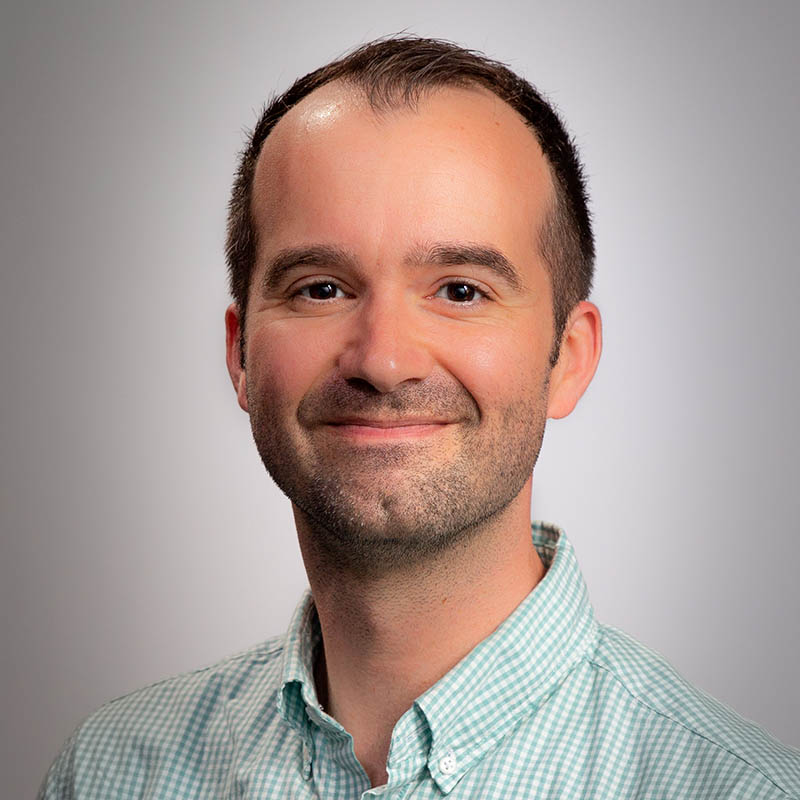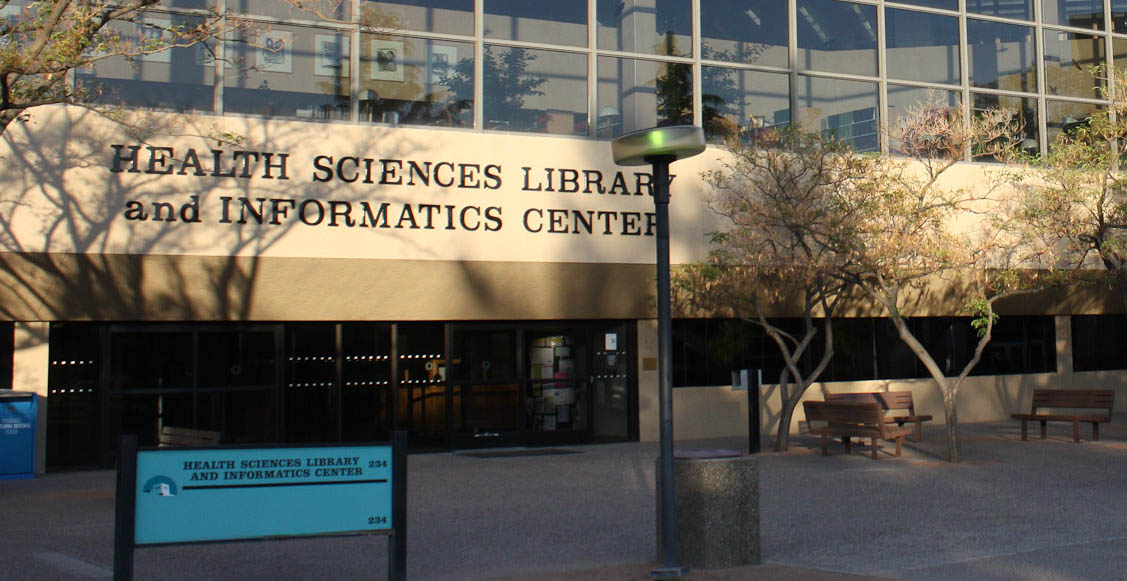For decades, the Native Health Database (NHD) has served as a springboard for researchers as they explored specific topics and needs that directly impact Indigenous populations.
Jonathan Pringle, MAS, scholarly communications and digital librarian for The University of New Mexico Health Sciences Library and Informatics Center (HSLIC), wants to push this resource even further.
The database is an online collection that organizes and shares information related to the health and health care of American Indians, Alaska Natives and Canadian First Nations. It provides information for the benefit, use and education of organizations and individuals with an interest in health-related issues pertaining to Indigenous populations.
It's a unique search tool that has been accessed by educators, researchers, students and health providers all over the country for many years. When searching for a resource, users can refine their search by date, tribal or group affiliation, subject, resource type or other parameters. Resource types include journal articles, editorials, guidelines and monographs.
“I love that HSLIC is supporting a resource that is available to all across the country and North America – and even beyond,” Pringle said. “And I hope that we’ll soon be seen as a great place to publish information that pertains to the health and wellness of Indigenous communities.”
In the early 1990s, a collection of more than 3,000 documents titled “Papers on Indian Health” were donated to HSLIC, and thus began a multi-year data and resource project.
HSLIC archival librarians helped build and manage the NHD until the mid-2000s.
In 2005, HSLIC Native and Distance Services Librarian Patricia Bradley, MIS, tasked an advisory board with participating in the development of the NHD, serving as conduits from constituents regarding database usability and providing feedback on cultural sensitivity aspects. Under Bradley’s leadership, the NHD grew to more than 10,000 records.
Bradley unexpectedly passed away in 2019, which suddenly left the NHD without leadership and guidance for the future. Pringle was hired shortly afterward.

I always felt like I had a dual role of acknowledging and being respectful of the past, but also finding a new direction to move forward that brought the past to the present to the future
Right from the start, Pringle had to decide exactly what that new direction was going to be.
His No. 1 goal was to not let the NHD go by the wayside, like so many other similar resources that have been digitally housed and linked to Indigenous health-related documents and reports.
“I knew it would take some time, because when a project has been under the guidance of one person for so long, it’s hard to make a sudden turn to a whole new thing without checking with a lot of people to ensure that their vision and what they remember of Pat’s vision matches what my vision looks like,” he said.
In thinking about those multiple types of information that makes the NHD unique, like that “treasure trove” of 3,000 donated documents in the 1990s, Pringle said he wanted to make sure that moving forward, that same type of content could continue to be available, as well as additional materials.
“I’d like us to be able to link to or provide direct access to oral histories, moving images, audio recordings, and maybe even three-dimensional objects and artifacts from museums that could be contributed to the database,” he said. “Delivery of health care in Indigenous communities and contexts is well beyond just simply paper-based documentation. It can include a lot of other different modes of transmission of communication, information and research, so I wanted to be able to provide that.”
That goal was one of the primary reasons the NHD moved to a new online platform.
Currently, full resources are not stored on the database, and the individual database records provide information to guide users to the manuscript or document elsewhere. However, Pringle is actively working to change that, as he envisions the NHD as a one-stop-shop for researchers instead of serving as a simple springboard for gathering information.
“We’re moving to embed the content directly into the resource, so right now we have a student who is digitizing a lot of those older paper records and importing them directly into the database,” Pringle said. “That’s a long process, because there’s over 10,000 records that are described at the moment.”
In addition to supporting the ability to provide downloadable content alongside the descriptions, the new platform also allows for content submission.
There are three groups that Pringle is currently reaching out to in an attempt to stock the NHD with fresh, relevant resources and keep the database going: content creators (individuals, academic research units, government agencies, etc.), Indigenous communities and users.
“We have an ambitious plan on how to reach those three groups,” he said. “We’re right at the launch point of building relationships with a lot of those entities to find new relevant content, embed Indigenous co-management of that information and bring this information to users.”
The new platform also allows Indigenous communities to have a much greater degree of control over their access and distribution of resources.
Now that NHD is accepting content submissions, content is vetted through a series of unique Indigenous-led cultural protocols and traditional knowledge labels to ensure materials are not seen or used by those without the appropriate permission.
“Oftentimes, when we think in terms of historical research, Indigenous peoples have often been the subject of research but very seldom are involved with what happens afterward,” Pringle said. “It provides these communities an opportunity to get back research that has been done about them.”
The NHD does not require users to create an account to browse or access items in the collection, but registered users can save items to their personal collection for later review. Account registration is free.
